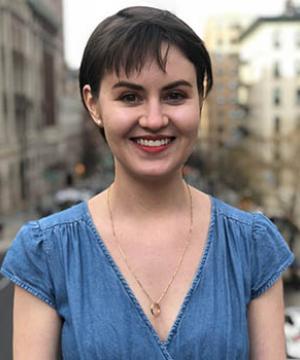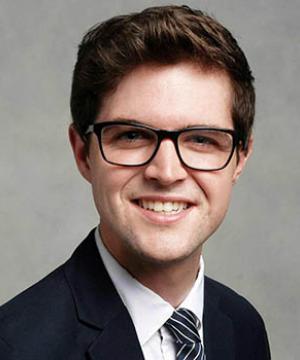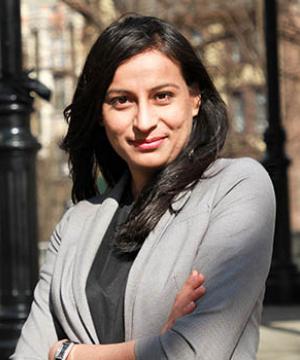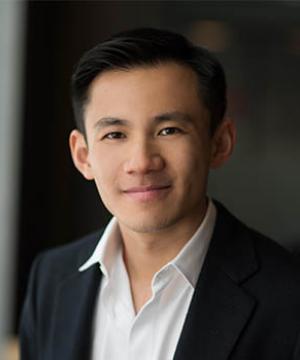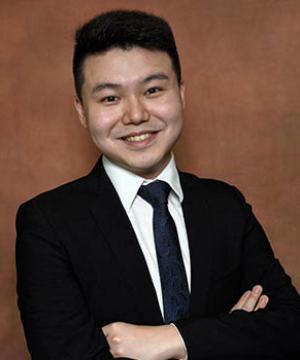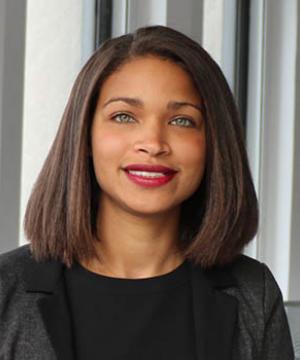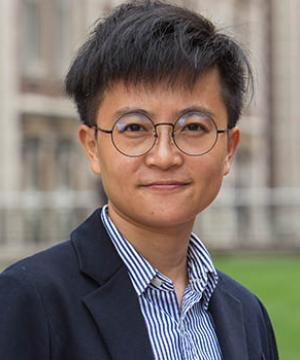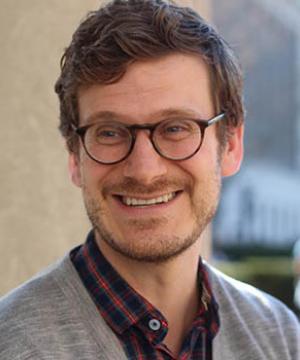Eight Stellar Students Awarded Postgraduate Public Service Fellowships
Members of the Class of 2018 will launch their careers at social justice and human rights organizations from Brooklyn to Bangkok.
In February, Columbia Law announced that seven students were awarded competitive public service fellowships. Now, in April, eight more students from the Class of 2018 have been awarded prestigious fellowships that provide stipends for a year of full-time work at both small nonprofits and global NGOs.
“Columbia Law School is committed to educating lawyers who will improve the world in various capacities,” says Dean of Social Justice Initiatives and Public Service Lawyering Erica Smock ’95. “Postgraduate fellowships are one of the many ways we support students as they begin their professional lives.”
The students will use their fellowships to work at organizations such as the Center for Reproductive Rights (Nepal office), Amnesty International Canada, and OutRight Action International in New York City. Four of the eight students received Global Public Service Fellowships, a new Columbia Law fellowship funded by Annie Chen ’88 through the RS Group. “I'm very encouraged to see the selection of this impressive inaugural group of Global Public Service Fellows, who will be at the forefront defending and protecting the rights of refugees and asylum seekers, women, LGBTIQ and other marginalized communities around the world,'' Chen said.
Rachel A. LaFortune ’18
David W. Leebron Fellow at Amnesty International Canada
Last summer, Rachel LaFortune returned home to Canada for a Human Rights Watch internship to work with the Chiefs of Ontario, a political organization that represents First Nations communities. There, LaFortune was able to exercise research and advocacy skills she developed in Columbia Law School’s Human Rights Clinic, where she worked to address the impact of a gold mine in Papua New Guinea on access to water for indigenous people and to support survivors of rape by mine security guards.
During her time at Columbia, LaFortune served as co-president of Rightslink, a student-run human rights research organization, and as co-president of Columbia Law Students for Palestine. She says her commitment to a public interest career was reinforced by the mentorship of Associate Clinical Professor of Law and Clinic Director Sarah Knuckey and Deputy Director Benjamin Hoffman as well as through Professor Katherine Franke’s Racial Justice Advocacy Workshop and Professor Susan Sturm’s Lawyering for Change course.
After graduation, LaFortune will spend her David W. Leebron Human Rights Fellowship year in Ottawa, working at Amnesty International Canada, specifically on its campaigns supporting the rights of First Nations, Inuit, and Métis peoples in Canada. “I hope to do my part, as a member of Canada’s white-settler society, to dismantle systems of oppression and work toward reconciliation and the full implementation of the U.N. Declaration on the Rights of Indigenous Peoples,” she says. “I hope this will be the first of many stepping stones in a long career as a human rights advocate.”
Jacob Bogart ’18
Columbia Law School Global Public Service Fellow at Fortify Rights
Before Jacob Bogart enrolled at Columbia Law School, he had already spent a summer in Haiti, where, for his college thesis, he interviewed internally displaced persons living in tent camps; another semester with Human Rights Watch in Switzerland; and a year at the National Human Rights Commission of Thailand.
Since arriving at Columbia in 2015, Bogart has continued to travel and build his public interest resume: He worked in the Central African Republic with the Human Rights Clinic and in Nigeria interviewing prisoners with disabilities in Lagos State prisons as part of the Human Rights Internship Program.
Working with Knuckey and other students, he helped launch and currently coordinates the Human Rights Institute (HRI) 1L Advocates Program. He served as a teaching and research assistant to HRI Faculty Co-Director Sarah Cleveland, traveling with her twice to Geneva for her work at the United Nations. “These experiences have prepared me for my career as a human rights lawyer through tailored mentorship, training, and direct exposure to real-world human rights work,” Bogart says. He will spend his Columbia Law School Global Public Service Fellowship year at Fortify Rights, a nonprofit that works to prevent and remedy human rights violations across Southeast Asia. “I came to Columbia to work in human rights law,” he says, “so it is thrilling to be on the precipice of this career.”
Shikha Pandey ’18 LL.M.
David W. Leebron Fellow at Jagdalpur Legal Aid Group
A criminal lawyer with degrees in sociology, social work, and law from the University of Delhi, Shikha Pandey came to Columbia Law to build on her litigation and advocacy skills. During her LL.M. year, she led a Spring Break Pro Bono Caravan with the Bronx Defenders and participated in a United Nations Externship with the Liaison Office of the International Criminal Court to the United Nations.
Pandey will use her David W. Leebron Human Rights Fellowship to work on transitional justice issues and legal rights of the indigenous tribal population for the Jagdalpur Legal Aid Group (JagLag), a nonprofit collective profiled in a New York Times article, “Shoestring Legal Aid Group Helps Poor in Rural India.” Run by three women lawyers, JagLag works in the Bastar region of the central Indian state of Chhattisgarh, the epicenter of an almost 50-year-old armed Maoist insurgency against the Indian state. The latter has responded by militarizing Bastar.
“The area is one of the most militarized zones in the country, with frequent reports of enforced disappearances, civilian casualties, and deaths of insurgents and counter-insurgency forces,” Pandey says. “I will endeavor to record the violations of international law, human rights, due process, and fair trial rights of those incarcerated in local prisons in the conflict area.”
Junteng Zheng ’18 LL.M.
Mark Haas Public Interest Fellow
“My journey to becoming a human rights lawyer has been a combination of transcultural experience, self-identification learning, and dual-system legal training,” Junteng Zheng says.
Zheng arrived at Columbia Law with an LL.B. from Renmin University of China Law School, a J.D. from UC Davis School of Law, and experience as a senior researcher for the U.N. Special Rapporteur in the field of cultural rights and a Helton Fellow with the American Society of International Law. He enrolled in the Law School’s Human Rights Clinic where, he says, he received “guidance, mentorship, and support” from Knuckey. He worked as a research assistant for Cleveland and became close to Professor Lori Damrosch while taking her International Criminal Law Colloquium.
“My career and academic pursuit have been heavily influenced by their teachings and inspiration,” Zheng says, adding that Dean of Graduate Legal Studies Sylvia T. Polo has been a crucial adviser and supporter of his public service ambitions. “The fellowship makes it possible for me to further my interdisciplinary research on human rights law in relation to sexual orientation and gender identity, a field of human rights that I hold dear to my heart and I aspire to promote.”
Daron Tan ’18 LL.M.
Columbia Law School Global Public Service Fellow at the Center for Asylum Protection
Daron Tan, who grew up in Singapore, earned a B.A. in jurisprudence from the University of Oxford in the United Kingdom before attending Columbia Law School. “I used to believe it was impossible for me ever to become a human rights lawyer in Southeast Asia, where the barriers to becoming a human rights advocate are insurmountably high,” he says.
Tan describes his LL.M. year as transformative. “Participating in the Human Rights Clinic was the first time I had the opportunity to engage in human rights work,” he says. “It was refreshing to be surrounded by like-minded individuals who shared a similar passion for public interest work and to learn from their experiences.” He also expanded his world view by joining the editorial staff of the Columbia Journal of European Law and volunteering for both the International Refugee Assistance Project and Human Trafficking Intervention Court.
Tan will spend his fellowship year at the Center for Asylum Protection in Bangkok, providing legal advice and representation to urban refugees. “It means so much to me to have my ambition of becoming a human rights lawyer validated,” he says. “I have been presented with this chance of being able to fulfill my dreams of amplifying the voices of the marginalized in an area of law that interests me greatly and is of pivotal importance in the face of refugee crises around the world.”
Susan Samalia Wnukowska-Mtonga ’18 LL.M.
Columbia Law School Global Public Service Fellow at the Center for Reproductive Rights
After receiving a law degree from the Australian National University, Susan Wnukowska-Mtonga came to the United States for an internship in the House of Representatives. Raised in Australia by her Polish mother and Zambian father, she says learning more about U.S. law made her acutely aware of shortcomings in Australia’s human rights laws and mechanisms. “My career decisions have been shaped by this revelation,” she says. “As a Polish-Zambian Australian woman, my life has been colored and shaped by structural injustice for reasons of race and gender.”
Wnukowska-Mtonga came to Columbia Law to segue from corporate law to public interest work. As a student in the Human Rights Clinic, she refined her career focus “to empower rights holders to advocate for themselves by improving human rights literacy internationally.” She adds, “I have also been greatly influenced by my incredible gender justice professor Katherine Franke, whose class redefined the way I view the world, the current power structures in our society, and my approach to the issue of gender equality.”
During her fellowship year, she will work for the Center for Reproductive Rights in the New York City and Kathmandu, Nepal, offices. Wnukowska-Mtonga will join the Global Legal Program’s capacity-building unit, where she will focus on expanding engagement by the judiciary and other high-level stakeholders in promoting reproductive rights across Africa and Asia. “I see reproductive rights as inextricably linked to a woman’s ability to exercise many other rights, including the right to be free from discrimination, the right to self-determination, the right to autonomy, and other socioeconomic rights,” she says.
Ping “Hoping” Hou ’18 LL.M.
Columbia Law School Global Public Service Fellowship at OutRight Action International
As the first woman from her poor village in China to go to college, Ping Hou, who goes by the name Hoping, says her early life shaped her passion and commitment to social justice. She decided to study law because she believed it was the right tool for self-empowerment and to help others, especially women and girls. Although earning law degrees and developing professional skills did empower her, they could not relieve her “innermost suffering out of fear—the fear of being ostracized by my family, the society, and the whole institutional system because of my double marginalized identity as a queer,” she says.
After starting a career as a commercial lawyer, Hoping founded the first volunteer-based LGBTQ advocacy group in her home province. She named the group LesGo—short for “Lesbian girls, let’s go!” In various innovative ways, the group has helped local LGBTQ people build confidence through self-identification and public education about LGBTQ issues at the local and national levels.
To transition to a public interest career, Hoping applied for an international fellowship with PILnet (the Global Network for Public Interest Law) which brought her to New York in 2015–2016. The following year, she was appointed a visiting scholar at Columbia Law School’s Center for Gender and Sexuality Law.
Selected as a Mark Haas Public Interest Fellow and a Human Rights LL.M. Fellow, she pursued her LL.M. at Columbia in 2017–2018. During her time at the Law School, she worked as a research assistant to Professors Knuckey and Cleveland. As the LL.M. representative in the student organizations OutLaws and Queer and Trans People of Color (QTPOC), she organized the first “Out-in-Law” public interest career panel. For her concentration on international human rights law, she was awarded a 2018 Parker School certificate of recognition. Now, having received a Global Public Service Fellowship, Hoping will work with OutRight Action International, an LGBTQ organization headquartered in New York, for a year. “I aim to become not only an experienced human rights advocate,” she says, “but also an inspiring educator to encourage more people to support social justice and human rights in all kinds of innovative ways.”
Ted Olds ’18
Kirkland & Ellis Public Service Fellow at Brooklyn Legal Services Corporation A
As a Peace Corps volunteer in Lusaka, Zambia, Ted Olds learned a valuable lesson: “The critical first step toward helping a community is asking them if they actually want your help, and, if so, what type of help they need,” he says. “It’s important not to assume you know what other people want and need.”
Olds came to Columbia Law with a decade of public service and social justice experience, including stints at the U.S. Department of Agriculture Food and Nutrition Service and the U.N. Standing System Committee on Nutrition. While at Columbia, he served as a notes editor of the Columbia Law Review and interned at the ACLU and Neighborhood Defender Service of Harlem.
“The most transformative courses I’ve had at Columbia have been Lawyering for Change with Professor Susan Sturm, where I learned about the importance of self-awareness and reflection while trying to make change as a lawyer, and my three semesters in the Challenging the Consequences of Mass Incarceration Clinic with Professor Brett Dignam. The latter allowed me to represent real people facing difficult situations and gave me a taste of the thrill of helping them achieve their goals,” he says.
Olds will use his Kirkland & Ellis Public Service fellowship to work at Brooklyn Legal Services Corporation A, a community-based legal-assistance organization, to protect and expand affordable housing in North Brooklyn. “Their strategy, methods, and theory of development precisely fit with what I believe to be the best way to effect positive social change,” he says
###
Published on April 25, 2018
